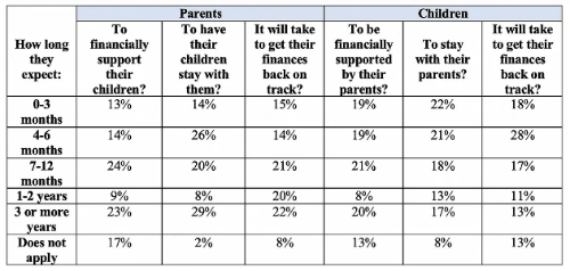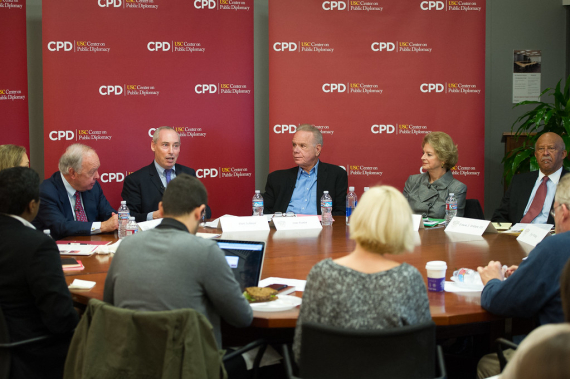
The COVID-19 pandemic has had a profound impact on all aspects of life and has resulted in significant changes to the way we work, live and think about money. These changes are especially true for parents and adult children who have combined once separate households, according to new data from New York Life.
“It’s clear that more than ever, taking care of family is a priority for so many Americans,” said Aaron Ball, SVP and Head of Insurance Solutions at New York Life. “Our data also suggests that it is clear many families will have some difficult conversations about money on the horizon.”
At the start of the pandemic, many adults returned to their parents’ home to ride out the storm – some to escape a viral hot spot, and others due to job losses. New York Life’s survey found that the proportion of Americans whose adult children moved back home with them (or adults who said that they moved back home with their parents) is relatively small; however, the data identifies a disconnect in longer-term expectations.
Parents are under the impression that they will need to support their children for a longer period than their children believe. For example, 38% of adult children believe they will only need financial support for six months or less, while only 27% of parents share that sentiment.
Of the parents whose children moved back home, nearly one in three (29%) expect their kids to stay with them for three or more years. Only 14% believe their children’s stay will last three or fewer months. In contrast, just 17% of adults living with their parents expect to stay there for three or more years, whereas 22% expect to stay three or fewer months.
Ball concluded, “The different expectations that parents and their adult children have on how long they expect to rely on one another suggests a greater need to normalize family discussions about finances. Given that many of these households are now sharing expenses in a way they might not have been prior to the pandemic, it’s important to open a dialogue about how to ensure that financial goals for all generations in an extended family unit can be achieved. These are often emotional conversations, so enlisting the help of a trusted financial professional who can offer an independent perspective is often incredibly valuable.”
Survey Methodology
New York Life commissioned Morning Consult to conduct a series of recurring surveys among a national sample of 2,200 adults. This poll was conducted online between May 29-June 1, 2020, and the data were weighted to approximate a target sample of adults based on age, educational attainment, gender, race, and region. Results from the full survey have a margin of error of plus or minus 2 percentage points. Results are compared to those from previous polls conducted between March 23-24, April 9- 10, and April 21-24, 2020

Source: https://www.newyorklife.com/newsroom/2020/covid19-navigating-financial-interdependence













































